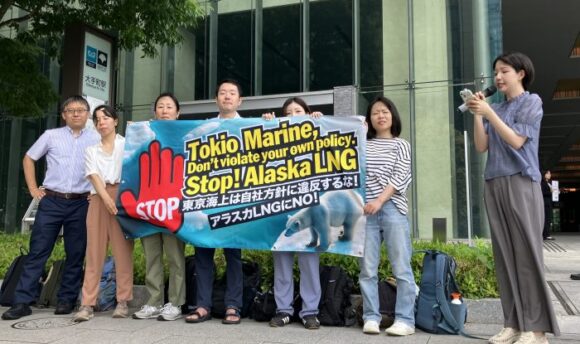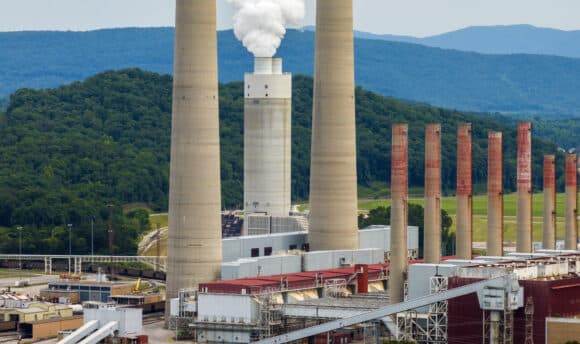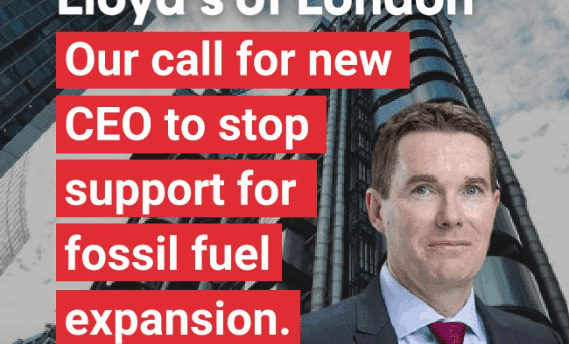Four companies back expansion plans as industry leaders end cover for new coal power
Four European insurers are continuing to support plans to expand Poland’s coal industry, reveals research from the Insure Our Future campaign released today as the country prepares to host the UN Climate Summit next month.
Germany’s Talanx, Austrian insurers Vienna Insurance Group (VIG) and UNIQA, and Poland’s PZU are still supporting an industry which plans to build more than 7GW of new coal power, undermining international action to avoid dangerous climate change and threatening to increase deaths from air pollution across Europe.
"When the world’s governments gather for the UN climate summit in Katowice this December they will be breathing some of Europe’s most polluted air. Delegates should remember that coal companies are only able to poison the air and undermine climate targets because insurers like Talanx, VIG, UNIQA and PZU are willing to underwrite their activities.”
Since February, when Insure Our Future’s Dirty Business report highlighted insurers supporting Poland’s coal industry, Allianz, Generali and Munich Re, have all pledged to stop insuring new coal power (Munich Re just in industrialised countries). All three have been major underwriters of Polish coal, so it is a significant blow to the industry and limits the pool of companies willing to insure the construction of the planned 1000MW Ostroleka C plant. However, Talanx, UNIQA and VIG have made no such commitments .
Insure Our Future has now identified at least 33 contracts worth more than €250 million signed since 2013 to underwrite new and existing coal mines and power plants, in research which updates figures in Dirty Business. Talanx’s subsidiary Tuir Warta and Munich Re’s subsidiary Ergo Hestia have each insured 17, Polish insurer PZU has insured 16, and Allianz and Generali 13 each. UNIQA has signed 5 and VIG’s subsidiaries Interrisk and Gothaer Poland 2 each.
Talanx, PZU, Munich Re, Allianz and Generali are underwriting the biggest power plant under construction in Europe, an 1800MW expansion at Opole due to start operating in 2019. The same five also underwrote construction of a 1075MW new unit at Kozienice which was completed in December 2017. The contracts were signed in 2014 and 2013. Talanx also owns Hannover Re, which is one of the main reinsurers of PZU.
VIG appears to be scaling up its support for Polish coal as the big companies pull out. UNIQA, Interrisk and Gothaer Poland are together underwriting a 910MW expansion at Jaworzno, due to start operating in 2019, and a 490MW expansion at Turow, due to start in 2020. VIG, the owner of Interrisk, acquired Gothaer Poland earlier this year.
Insure Our Future is releasing its latest research as a new campaign calls on the public to put pressure on insurers and banks still supporting coal projects and companies three years after the Paris Climate Agreement. It highlights the impact of the Turow power plant, in a video hosted on the Europe Beyond Coal website: beyond-coal.eu/finance.
Coal is the biggest single source of CO2 emissions. The UN has called for an end to new coal power plants, and the latest report from its Intergovernmental Panel on Climate Change finds that at least 59% of all coal power must be phased out by 2030 to meet the Paris climate target of limiting global warming to 1.5°C. The International Energy Agency also warned last week that the world cannot meet the Paris target if it builds new polluting fossil fuel power plants. “We have no room to build anything that emits CO2 emissions,” said Executive Director Fatih Birol.
Emissions from six Polish coal companies contributed to an estimated 2,560 premature deaths across Europe in 2016, according to new research. The country is home to 33 of Europe’s 50 most polluted cities: in Katowice, where the COP24 climate summit opens on December 2nd, average particulate levels are more than three times the World Health Organisation limits.
"Polish companies are pressing ahead with aggressive development plans despite growing evidence that new coal plants will lose money. This shows they care little about tackling climate change, protecting public health, or acting in the best interests of shareholders.”
Attention is now focusing on the 1000MW Ostroleka C unit, which Polish state-controlled utilities Energa and ENEA plan to build at a cost of €1.2 billion. The plant is due to operate from 2023 until 2063, far beyond the timeline for phasing out coal in line with the Paris Agreement.
Meryam Omi, head of sustainability and responsible investment at Legal & General Investment Management, which invests in Energa and ENEA through an index-linked fund, said they had “serious concerns” about the project. “Our clients are exposed to very high financial risks due to its uncertain financial support, rising carbon prices, unreliable capacity payments and threat of new technologies in energy generation,” she said. Environmental lawyers ClientEarth are suing Enea on the grounds that the unit poses an “indefensible” financial risk.
The financial think tank Carbon Tracker has found that more than half of EU coal plants are already loss-making, and the falling cost of renewables, tougher air quality standards, and rising carbon prices will push this up to 97% by 2030.
This June global investors with $30 trillion in assets called on governments to take urgent action to implement the Paris Agreement, including phasing out coal power in Europe and OECD countries by 2030 and worldwide by 2050.



